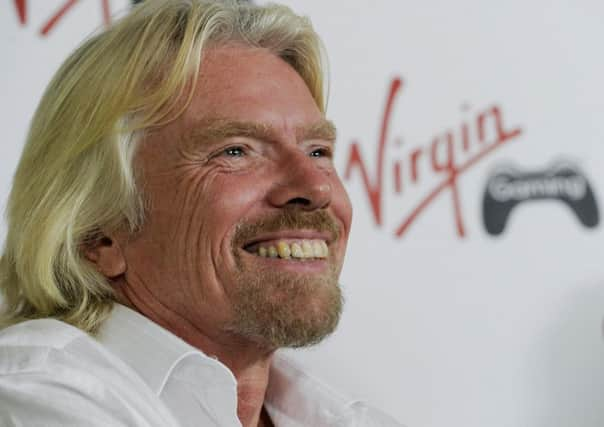Why PR is about more than just turning on the spin


SOMEBODY once said, “there’s no such thing as bad publicity”.
Whoever it was they presumably never found themselves in the middle of a global crisis with half the world’s media camped out on their doorstep demanding answers.
Advertisement
Hide AdAdvertisement
Hide AdBut just as having an instantly recognisable logo is crucial to the success of a business, so, too, is the importance of having a positive public image.
Some people regard public relations as little more than a Machiavellian “dark art” practiced by spin doctors adept at massaging the truth.
It’s certainly fair to say that PR often gets a bad rap, sometimes justifiably so, but while public relations gaffes often get jumped on mercilessly in the Press, there is a flip side to the coin.
Last week, Rory Allen was among the legions of people who filmed Flying Scotsman as it travelled from London to York for the first time since its lengthy refit. But just as the world famous locomotive approached Little Bytham in Lincolnshire, where Mr Allen had been waiting patiently with his video camera, he was accidentally “photobombed” by a Virgin East Coast train travelling in the opposite direction, scuppering his magic moment.
Advertisement
Hide AdAdvertisement
Hide AdMr Allen, originally from Doncaster, where Flying Scotsman was built, posted his footage online and within hours the story was being reported around the world.
That could have been the end of the tale but then Virgin Atlantic spotted an opportunity and responded to his video by offering him free flights to Atlanta to make up for it.
It was a PR masterstroke that not only changed the narrative in an instant but turned Virgin into the hero, rather than the villain of the piece.
Alan Stevens, a media trainer and crisis management expert who www.mediacoach.co.uk, says it highlights the importance of good PR. “It’s one of the few things that really differentiates you from your competitors. You have to be on the ball and what Virgin did was very smart because it got people talking positively about them,” he says.
Advertisement
Hide AdAdvertisement
Hide AdBad news stories can quickly become toxic if they’re not handled correctly, but if they are then the company involved can come out of it with its reputation enhanced.
Stevens points to the way Sir Richard Branson handled the situation when a Virgin train travelling from London to Glasgow derailed near Kendal, in 2007, leaving one person dead and scores injured.
“He interrupted his family holiday to go straight up there and he was on the scene very quickly. He was pictured at the scene and visited the hospitals treating those injured. He said his trains were very strong and he called the driver a hero, and those two statements restored confidence in Virgin trains.”
Sometimes, though, a positive PR story happens by chance. Last month, Lisa Wilks was having a meal with her husband Jeremy and their children in a West London branch of Pizza Express when they noticed that a fellow diner with learning difficulties was unable to pay for her meal because her card was declined.
Advertisement
Hide AdAdvertisement
Hide AdHer husband immediately offered to pay for the stranger’s dinner – only for the restaurant manager to settle the bill himself. He explained that Pizza Express authorised the restaurant to give away two free meals per month and that as well paying for the woman’s meal he would like to pay for their family’s meal too, as a “thank you” for their act of generosity.
Mrs Wilks wrote a Facebook post praising the restaurant manager’s actions which went viral and has now been shared more than 40,000 times.
It not only highlights the power of social media, it shows that a good PR story doesn’t have to be manufactured and that it can still spring from an unplanned act of human kindness.